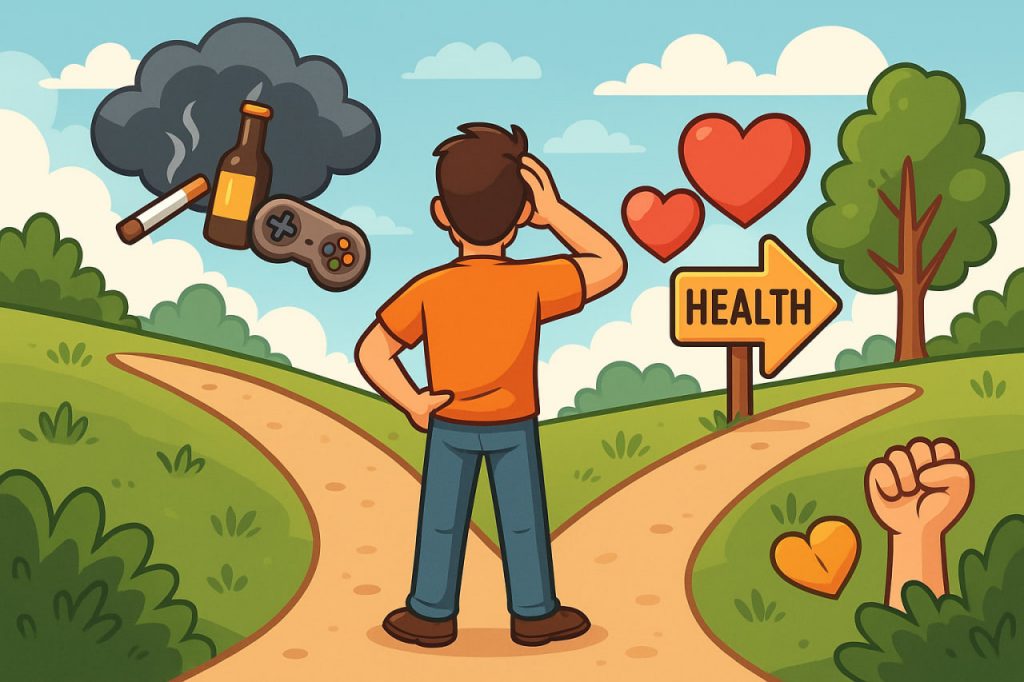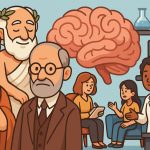Addiction is a chronic condition in which a person develops an uncontrollable urge to engage in a behavior or consume a substance, despite harmful consequences. It affects both the brain and behavior, making it difficult to stop even when the individual is aware of the risks. Addiction is not only about drugs or alcohol — it can also include gambling, internet use, gaming, or even food.
How Addiction Develops
Addiction is strongly linked to the brain’s reward system. When someone uses a substance or performs a rewarding behavior, the brain releases dopamine, creating feelings of pleasure. Over time, the brain begins to crave these sensations, leading to repeated use. Eventually, tolerance develops — the person needs more of the substance or activity to feel the same effect — and dependence takes hold.
Types of Addiction
- Substance addiction – alcohol, nicotine, drugs, caffeine.
- Behavioral addiction – gambling, gaming, internet, shopping, or eating.
- Psychological dependence – reliance on certain habits to cope with stress or emotions.
Signs of Addiction
- Strong cravings and inability to control use.
- Neglecting responsibilities at work, school, or home.
- Withdrawal symptoms when trying to quit.
- Continuing the behavior despite negative consequences.
- Loss of interest in other activities.
Health and Social Consequences
- Physical health risks – liver disease, heart problems, weakened immunity.
- Mental health issues – depression, anxiety, memory loss.
- Social problems – damaged relationships, financial struggles, isolation.
- Legal risks – for addictions involving illegal substances or behaviors.
Overcoming Addiction
- Acknowledgment – recognizing the problem is the first step.
- Support systems – family, friends, or support groups.
- Therapy and counseling – cognitive-behavioral therapy helps reshape habits.
- Medical treatment – in some cases, supervised detox or medication is needed.
- Healthy replacements – adopting exercise, hobbies, or mindfulness practices.
Conclusion
Addiction is a serious condition that reshapes how the brain works, but it is treatable. With the right support, therapy, and commitment, people can recover and regain control of their lives. Understanding addiction is crucial not only for those affected but also for society as a whole.
Glossary
- Addiction – uncontrollable dependence on a substance or behavior.
- Dopamine – a brain chemical linked to pleasure and reward.
- Tolerance – needing more of a substance to achieve the same effect.
- Withdrawal – unpleasant symptoms that occur when stopping use.
- Cognitive-behavioral therapy – a form of therapy that changes thought and behavior patterns.


